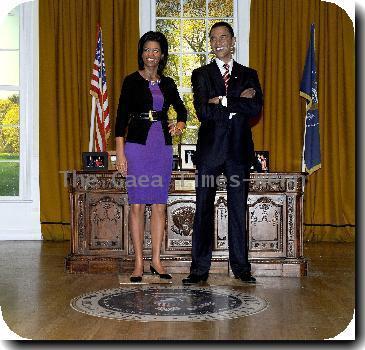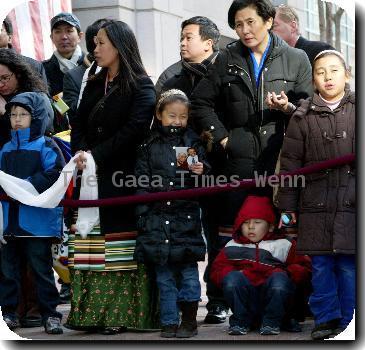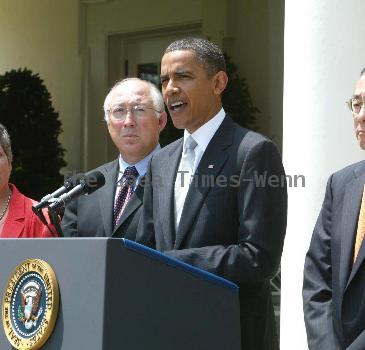Supreme Court nominee Kagan says judges take account of values, experience in deciding cases
By Mark Sherman, APSaturday, May 22, 2010
Elena Kagan’s writings suggest judge’s proper role
WASHINGTON — Elena Kagan, a Supreme Court nominee without judicial experience, has suggested in writings and speeches over a quarter-century that when judges make decisions, they must take account of their values and experience and consider politics and policy, rather than act as robotic umpires.
Not since 1972 has a president picked someone for the high court who hasn’t been a judge. So what the 50-year-old Kagan has said about judging might be the best indicator of the kind of justice she would be.
Republicans have said that because Kagan hasn’t left a trail of judicial opinions, they will pore over her records as a Clinton White House aide and academic for any clues. Her speeches and papers from her time as dean of the Harvard Law School and, before that as a law professor and graduate student, are certain to get close attention at her confirmation hearing in late June.
Her words stand in contrast to the more technical view of judging voiced by Chief Justice John Roberts at his confirmation hearing five years ago. Roberts said he considered himself an umpire merely calling balls and strikes.
Kagan apparently has never directly addressed Roberts’ comments. Republicans have held his description of the job as a model of judicial restraint and used it to criticize President Barack Obama for what they call his support of judicial activism — judges imposing their own views on the law.
But Kagan put forward a different idea of judging in a 1995 law review article.
“It should be no surprise by now that many of the votes a Supreme Court justice casts have little to do with technical legal ability and much to do with conceptions of value,” Kagan said in a review of Yale law professor Stephen Carter’s book “The Confirmation Mess.”
Kagan quoted Carter approvingly to say that to decide the hard cases that rise to the level of Supreme Court review, justices must use their judgment. When they do that, Kagan said (again citing Carter), their “own experience and values become the most important data.”
It may be hard to divine just what Kagan meant, but it’s “not calling balls and strikes,” says Georgetown University law professor Pamela Harris.
Last year, Republicans chided Obama for saying his first Supreme Court nominee, Sonia Sotomayor, would bring empathy — the ability to see things from another’s point of view — to the bench. A leading Obama critic, Sen. Jeff Sessions, R-Ala., has said the empathy standard is “this feeling standard. Whatever that is, it is not law. It is not a legal standard.”
Obama stopped using the “e-word,” but recently Justice Anthony Kennedy offered up a defense of empathy — in words similar to Kagan’s. He suggested there was nothing controversial about it.
“You certainly can’t formulate principles without being aware of where those principles will take you, what their consequences will be,” Kennedy said at a speech in Florida on May 14. “Law is a human exercise and if it ceases to be that, it does not deserve the name law.”
Kagan had been recently made the Harvard law dean when she spoke to a group of Princeton alumni in 2003 about judicial review, the courts’ power to review the actions of the other branches of government.
In handwritten notes that were among the thousands of pages of documents Kagan provided the Senate Judiciary Committee, she said judicial review “should be exercised w/ caution” because it involves overturning the actions of popularly elected officials.
Interpreting the Constitution is not mechanical, she said. If it were, it “wouldn’t be issue,” Kagan wrote in abbreviated notes.
Interpretation, Kagan said, “necessarily + inevitably” involves “political + policy questions.”
She referred in her notes to the court’s Bush v. Gore decision that effectively ended the recount of votes in Florida after the 2000 election and Vice President Al Gore’s hopes of becoming president.
Kagan did not offer her own view about the case, only that it was an example of the difficulty judges face.
After receiving her law degree from Harvard in 1986, Kagan spent two years as a law clerk, first to Abner Mikva when he was a judge on the federal appeals court in Washington and then to Justice Thurgood Marshall.
But even before she studied law at Harvard, Kagan wrote her master’s thesis at Oxford University in England about the Supreme Court under Chief Justice Earl Warren’s leadership from 1953 to 1969.
Kagan was critical of the way the Warren court reached some of its most important decisions in favor of criminal defendants, saying it used poor legal reasoning that allowed later justices to scale back some protections for defendants.
She seemed sympathetic to what the Warren court was trying to do, “correct the social injustices and inequalities of American life,” but quarreled with how it did that.
Near the end of the 130-page paper, Kagan took her first stab at explaining how a judge should make tough calls.
Decisions “should be based upon legal principle and reason,” she said. At the same time, Kagan said, “The law, after all, is a human instrument — an instrument designed to meet men’s needs.”
Tags: Barack Obama, Judicial Appointments And Nominations, Legislature Hearings, North America, United States, Washington





